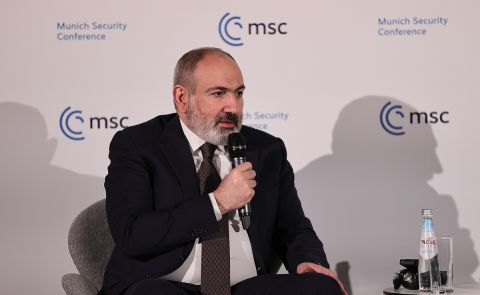
Georgia, NATO and South Caucasus
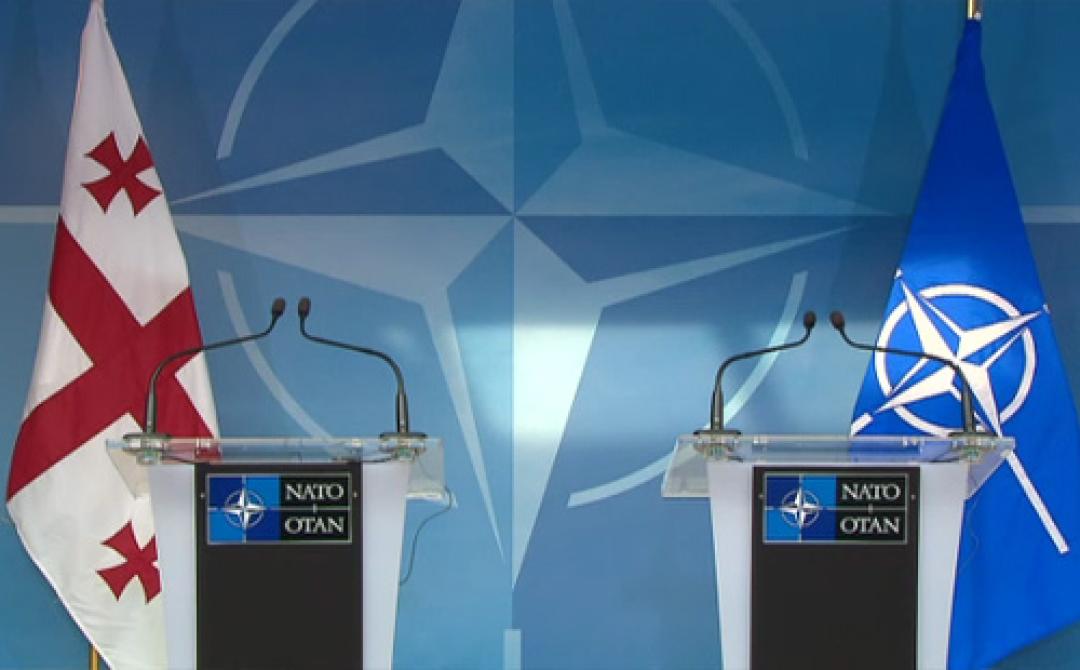
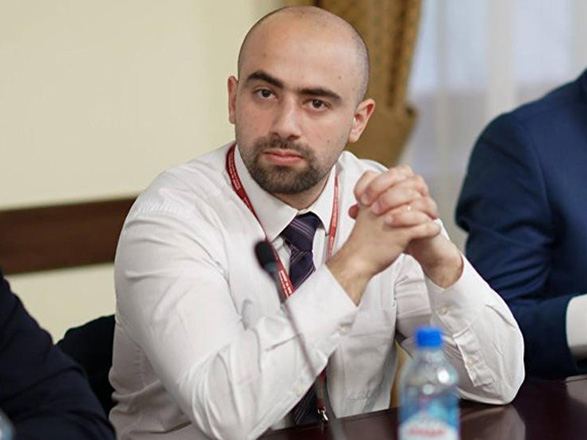 On September 27, 2020 arguably Azerbaijanian military forces initiated a full-scaled operation against self-proclaimed Republic of Nagorno-Karabakh (RNK) and Armenia officially for securing and restoring the country’s territorial integrity. We may argue that this confrontation is not yet another escalation but rather a real war that can lead to a collapse of South Caucasus regional stability and order. This is even more realistic in the wake of Ankara’s obvious involvement and the Kremlin’s national interests, on the one hand, and deterioration of US global hegemony, on the other hand. In the same time, according to Craig Turp-Balazs from Emerging Europe, NATO Secretary-General Jens Stoltenberg has told Georgian PM Giorgi Gakharia to “prepare for membership” during tet-a-tete visit to Brussels on September 29. Generally speaking, it seems that South Caucasus is going to become the platform of rivalry between the so-called “great nations” again; and despite the “firm statements” from the heart of Europe it is pretty clear that NATO’s presence in the region is not welcomed by key actors. Furthermore, the North-Atlantic alliance is the weakest player on the chessboard.
On September 27, 2020 arguably Azerbaijanian military forces initiated a full-scaled operation against self-proclaimed Republic of Nagorno-Karabakh (RNK) and Armenia officially for securing and restoring the country’s territorial integrity. We may argue that this confrontation is not yet another escalation but rather a real war that can lead to a collapse of South Caucasus regional stability and order. This is even more realistic in the wake of Ankara’s obvious involvement and the Kremlin’s national interests, on the one hand, and deterioration of US global hegemony, on the other hand. In the same time, according to Craig Turp-Balazs from Emerging Europe, NATO Secretary-General Jens Stoltenberg has told Georgian PM Giorgi Gakharia to “prepare for membership” during tet-a-tete visit to Brussels on September 29. Generally speaking, it seems that South Caucasus is going to become the platform of rivalry between the so-called “great nations” again; and despite the “firm statements” from the heart of Europe it is pretty clear that NATO’s presence in the region is not welcomed by key actors. Furthermore, the North-Atlantic alliance is the weakest player on the chessboard.
Dream’s on South Caucasus
It is not a secret that while some members of NATO are highly skeptical with regard to further enlargement to the South-East, others do perceive it as a critically necessary step in a fight against the so-called Russia’s neoimperialistic policy or revisionism. Among the most motivated states are United States of America and Eastern European countries, like Poland, Estonia, Latvia and Lithuania. These actors, perceived by Moscow as a “Russophobic alliance”, push for Georgia to be integrated to the block as soon as possible, considering Tbilisi as a perfect platform in the Russian “backyard” or how the Kremlin calls it “near abroad”. It was George W. Bush’s neoconservative administration that dreamed about friendly Georgia that could have been integrated to NATO and used to introduce the military block to previously totally alien geopolitical space, mainly dominated by modern Turkey, Iran and Russia. But resurrected from comprehensive political, economic, social and military crisis Kremlin stopped this ambitious project postponing the membership perspectives for the years. Currently, there has been a shift in approaching to the enlargement narrative and debate. Particularly, more and more voices were calling to introduce the so-called Black Sea region concept, meaning that seemingly resultless dialogue with regard to NATO on South Caucasus could have been replaced by NATO on the Black Sea. Obviously, South Caucasus have always been perceived as Russia’s zone of influence were Western European countries were not keen to interfere, oppositely to the Black Sea region where two NATO member states are already presented – Turkey and Bulgaria. Furthermore, additionally Ukraine and Georgia do represent significant allies and possible future military strongholds.
But it seems that this rapprochement is unable to push forward NATO’s aspirations to gain a foothold in South Caucasus due to a few reasonings. The first of all, we should outline deconstruction of America’s worldwide hegemony and self-identity crisis taking place in Washington. Secondly, Turkey’s heavy involvement in Nagorno-Karabakh confrontation is yet another prove that Ankara pursues its own geopolitical goals, considering itself foremostly as a successor of Ottoman Empire and its great mission rather than the North-Atlantic alliance member. Thirdly, the Kremlin’s grip on the “near abroad”. Fourthly, unreadiness of both, Azerbaijan and Armenia, to witness introduction of a new actor to the region. And, finally, unwillingness of the Western European states, especially, Germany and France to engage to this absolute mass. Thus, we should not expect to see an appraisal on NATO; furthermore, without America’s and Turkey’s military and financial capabilities, the block is probably the weakest player on this chessboard, unable to contribute to regional security.
“Be prepared”
Georgia has been “prepared” for NATO membership at least for the last decade. It is widely known that Tbilisi perceives the military block as a milestone in securing its territorial integrity and sovereignty from Russian assaults. Furthermore, NATO became more than just a “defense shield”, membership is considered to be a threshold in the country’s democratic and institutional development; finally, a guarantee of restoration of territorial unity. Despite endless promises given by NATO representatives that Georgia will joint the alliance, there are fears among Georgian political elites that overstretched membership plan can lead to dissatisfaction among regular citizens; this, in turn, may cause re-orientation of Georgia’s foreign course. As a response, American analyst Luke Coffee and Anders Fog Rasmussen, former NATO Secretary-General resurrected the idea of the German precedent, meaning that the state can be integrated to the alliance amending article 5 on the separatist regions of Abkhazia and the so-called South Ossetia. This approach, initially raised by Georgian actors in mid and late 90s, became widely popular among some American and Eastern European analysts but was highly criticized by Georgians as a recognition of territorial lost. So far, in the wake of a clear stagnation, recent statements by NATO Secretary-General was extremely necessary positive booster. But it is paradoxical that Nagorno-Karabakh confrontation actually proved once more that Georgia’s NATO dreams are unachievable.
Actually, to be grounded and realistic there are only three scenarios that can lead to Georgia’s NATO membership: 1) Gorbachev-Yeltsin model, meaning regime change in Moscow and re-iteration of Gorbachev-Yeltsin era when Russia was unwilling as well as too weak to counter the West; 2) the Turkish model, repeating scenario when Ankara was invited to the military block due to fears of the so-called communist or Soviet threat; and finally, 3) in the case of a war between the West and Russia. Yet it seems that neither of these events are going to happen in the nearer future, what makes Tbilisi’s NATO aspirations very long-term objective. Furthermore, the whole Georgian idea of being a NATO member was and still is to finally end the wars and not to engage to yet another one. Thus, the best option is to wait until some positive changes will take place in the Kremlin.
Archil Sikharulidze
See Also

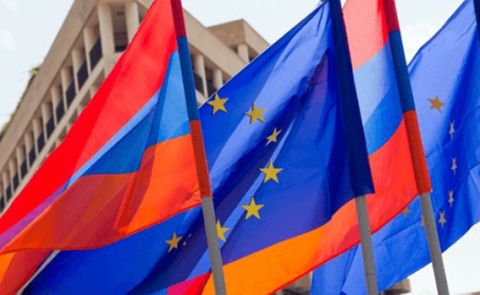
Armenia's Pursuit of Western Allies in the Wake of the Failed Russian Alliance

Building a New Beginning: Struggles and Triumphs of Armenians from Nagorno-Karabakh
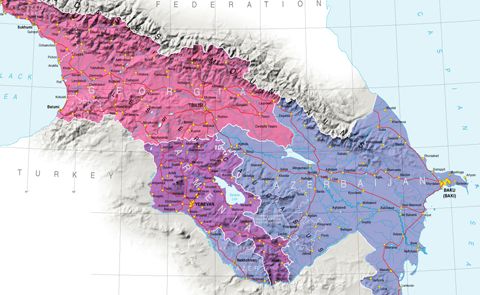
Trade Networks in the South Caucasus: Future Plans and State of Art

The Daily Struggles of Karabakh Armenians in Their New Home
